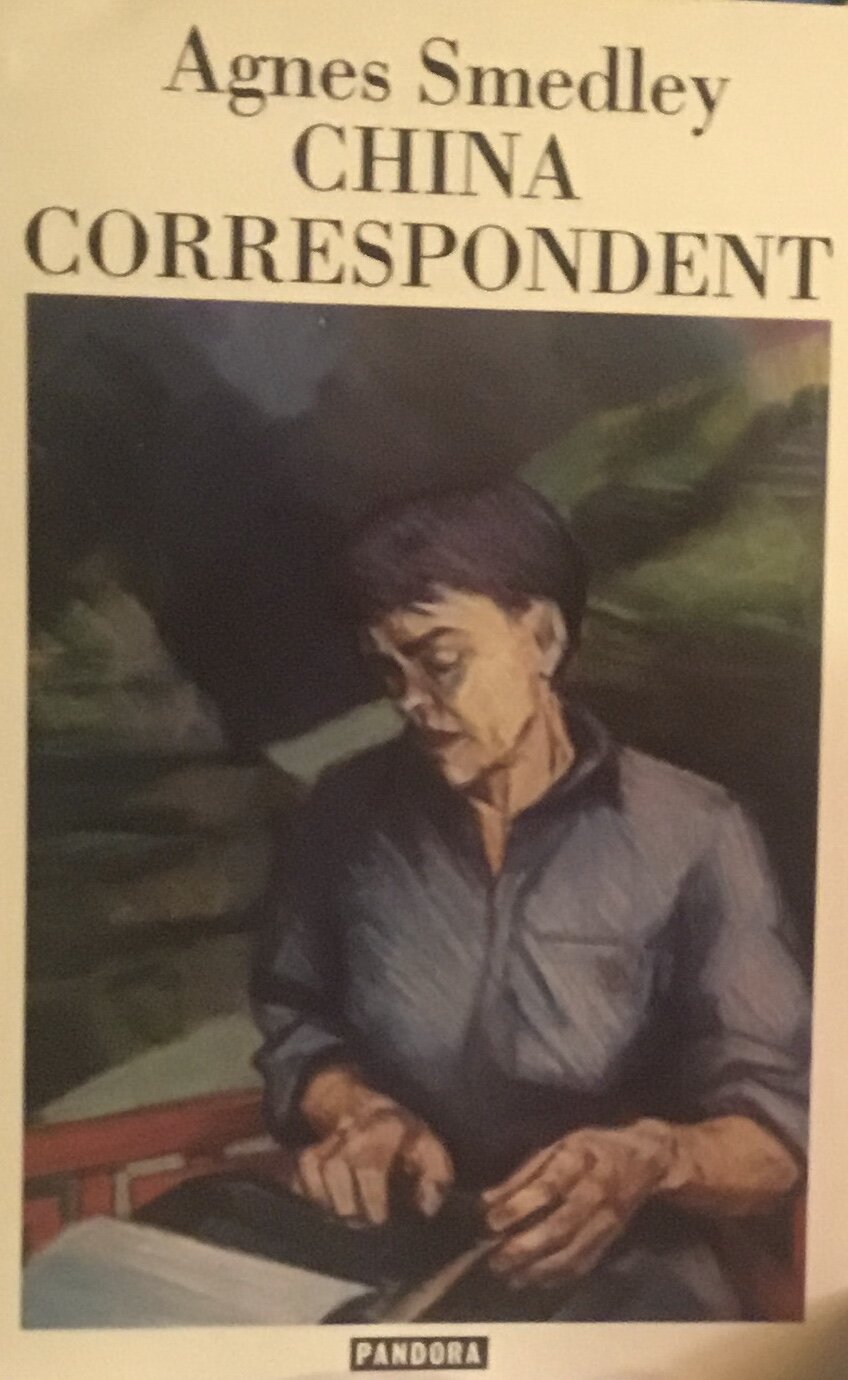China Correspondent by Agnes Smedley (Pandora Books)
“I have always detested the idea that sex is the chief bond between men and women. Friendship is far more human.” Agnes Smedley begins China Correspondent with this as her prevailing theme. Her search for friendship and what is human led her away from a life of intellectual and financial poverty to the farthest corners of the world in wartime China, an odyssey that began in 1919 and ended in 1941.
Escaping the example set by her father and brother, who “had lived like animals without protection or education,” Smedley left for New York when she was in her twenties where she was drawn into the world of exiled Indian intellectuals. Realizing that in America a woman who wasn’t interested in marriage or money was doomed, she took a job as a stewardess on a Europe-bound freighter, saying “Live the life of a cabbage I would not.”
Landing in Danzig, she embarked upon an eight-year relationship with an Indian revolutionary leader, which she said “almost drove me to the verge of insanity.” After leaving him, she began to study Indian history, attempting to gain a PhD at Berlin University but abandoning her dream when she realized she lacked the necessary preparation for it. An interest in Chinese history and in that country’s revolution took her to China and “into the Middle Ages.” Arriving in 1928, she stayed there for thirteen years.
From the beginning, Smedley was determined to enter into Chinese life “and let it strike me full force.” As special correspondent to a leading German newspaper, she gained access to people and places that most thirty-six-year-old Western women had no knowledge of or interest in. She argued with “Chinese patricians” in Beijing, was guided through Nanjing by Kuomintang officials, and became friends with the writer Lo Hsun in Shanghai who drew her sympathies to the “men who were fighting and dying for the liberation of the poor.”
After Japan invaded Manchuria in 1931, Smedley turned her attention to the Chinese troops, traveling to them and frequently with them as much as she could. In a Yan’an mountain cave she met Mao, “a tall, forbidding figure,” who immediately struck her as an aesthete. “I was repelled by the feminine in him” she writes but later is grateful for their “months of precious friendship.” Asking him if she should write a biography of a leading general or go to the front as a journalist, she was told by Mao, “The war is more important than your history.”
As the Japanese captured Beijing, Shanghai, and Nanjing, Smedley marched with the Chinese army, often covering twenty-five to thirty miles a day. She worked with the Chinese Red Cross Medical Corps, trying unsuccessfully to gain them American aid. She argued forcefully with an American businessmen that when he and his colleagues sold war materials to Japan, they “were digging their own graves,” only to be told “Why shouldn’t we sell to anyone who will pay?”
Reporting with every scrap of strength and energy that she had, Smedley lost journalistic objectivity by allying herself with the Red Army and eventually lost her health. However she never lost her sense of humor. In an army camp, seeing troops march past bearing rifles, she asked where they were going and was told “To watch a movie.”
“I liked the idea of taking artillery to the movies. For years I had seen many...that had left me completely frustrated, without any way of revenging myself. I now realized had I taken a heavy machine gun,,,I could have looked on with sweet patience, biding my time.”
At last, weakened by repeated attacks of malaria and a malfunctioning gall bladder, her toenails falling off and her teeth loosened by malnutrition, Smedley was put on a plane to Hong Kong. “What do you want or need?” she was asked on her first morning. Her reply was “Ice cream.”
Before she left for the U.S, an American pilot told her “Why honey, don’t you know you’ll be unhappy back there with all those foreigners?” But Smedley returned with a new battle to fight on ground that no longer felt like her own, “to tell America the truth about China.” Almost a hundred years after her time in China, her passion and her truth still is compelling and moving, fulfilling the promise she made to soldiers who had said “Tell your countrymen.~Janet Brown
